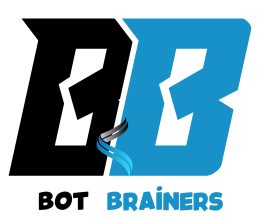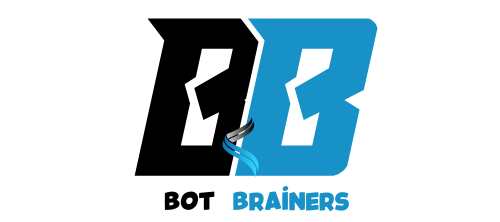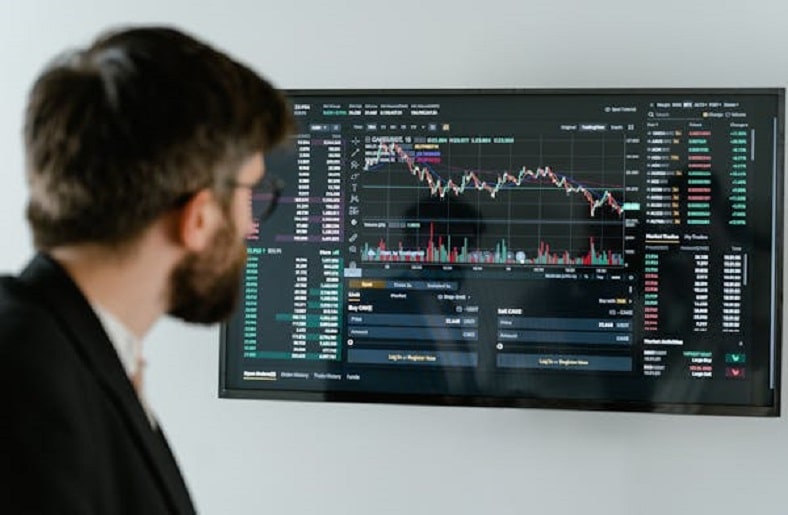Are you a sole trader struggling to manage your finances amidst the chaos of running a business? You’re not alone, many small business owners face the challenge of balancing accounting tasks with daily operations. The good news is, the right accounting software can take the pressure off, automate tedious tasks, and keep your financials organized. In this blog post, we’ll reveal the best accounting software for sole traders in 2024, offering proven solutions to simplify invoicing, track expenses, and ensure tax compliance. By the end, you’ll have a clear understanding of which software fits your needs, saving you time and reducing stress while helping your business thrive.
The Importance of Accounting Software for Sole Traders
Research shows that small businesses, including sole traders, benefit significantly from accounting software. According to a survey by QuickBooks, 60% of small business owners reported that using accounting software made it easier to track and manage their finances, while 46% said it helped them stay on top of their taxes. These statistics highlight software’s positive impact on simplifying financial tasks, reducing errors, and ensuring tax compliance.
In addition, a Gartner report on financial management tools indicates that businesses that use accounting software are 25% more likely to report higher profitability due to improved financial visibility and streamlined operations.
Top Accounting Software Picks for Sole Traders in 2024
Choosing the right accounting software can save sole traders time, reduce errors, and simplify financial management. Below is an overview of the top software solutions for sole traders in 2024, including their features, pricing, pros, and cons. Each option is tailored to suit specific needs, whether you’re a freelancer, a small business owner, or managing a growing enterprise.
1. QuickBooks
Why It’s a Top Choice?
QuickBooks is a top choice for businesses due to its user-friendly interface, robust features, and seamless cloud-based accessibility, simplifying financial management. Trusted by millions, it offers tailored plans, integrations, and reliable security to meet diverse business needs.
Features
- User-friendly interface with dashboards for tracking income and expenses.
- Customizable invoicing templates and automated reminders.
- Advanced tax calculation tools, including VAT and self-assessment tax prep.
- Mileage tracking and integration with apps like PayPal and Shopify.
Pricing
- Simple Start Plan: $15/month (ideal for sole traders).
- Essentials Plan: $30/month (supports more advanced features).
- Offers a 30-day free trial.
Pros
- Extremely popular and widely used, with excellent customer support.
- Scalable, meaning it can grow with your business needs.
- Real-time financial tracking and robust mobile app features.
Cons
- Can be more expensive than other options for sole traders with basic needs.
- Some users report a steep learning curve with advanced features.
2. Xero
Why It’s a Top Choice
Xero is renowned for its cloud-based solutions, making it perfect for sole traders who want access to their financial data from anywhere. Its scalability also makes it ideal for businesses planning to grow over time.
Features
- Real-time collaboration with accountants or financial advisors.
- Cloud-based access with strong security and automatic updates.
- Bank reconciliation, expense tracking, and multi-currency accounting.
- Comprehensive reporting tools with custom insights.
Pricing
- Starter Plan: $13/month.
- Standard Plan: $37/month.
- Offers a free trial for new users.
Pros
- Excellent for collaboration and scalability.
- Designed for mobile and desktop use, offering a seamless experience.
- Extensive integration options with over 800 apps.
Cons
- The higher price point means access to more advanced features.
- It may not be ideal for sole traders with minimal accounting needs.
3. Wave
Why It Stands Out
Wave is one of the best free accounting software options for sole traders or freelancers starting their journey. It offers essential tools for managing finances without the burden of monthly subscription fees.
Features
- Free invoicing and receipt scanning.
- Basic expense and income tracking.
- Simple yet effective reporting tools, including profit and loss statements.
- Integration with payment processors (though payment fees apply).
Pricing
- Completely free for accounting and invoicing features.
- Payment processing fees: 2.9% + $0.30 per transaction for credit cards.
Pros
- Perfect for budget-conscious sole traders or freelancers.
- Clean and simple interface for beginners.
- There are no hidden fees for the core accounting functionalities.
Cons
- Lacks advanced features like inventory management or payroll.
- Limited customer support compared to paid software options.
4. Zoho Books
Why It’s an Affordable Powerhouse
Zoho Books is an excellent solution for sole traders looking for affordable yet feature-rich accounting software. It offers robust invoicing, reporting, and financial tools tailored for small businesses.
Features
- Professional invoicing with customizable templates.
- Expense tracking and automatic bank feeds.
- Strong reporting tools for profitability, cash flow, and tax summaries.
- Integration with Zoho’s ecosystem, including Zoho CRM and Zoho Invoice.
Pricing
- Free Plan: Available for businesses earning less than $50,000 annually.
- Standard Plan: $12/month.
- Professional Plan: $24/month.
Pros
- Affordable with a free plan for smaller businesses.
- Excellent for invoicing and tax preparation.
- Seamless integration with other Zoho tools.
Cons
- Limited integrations outside the Zoho ecosystem.
- It can feel overwhelming for first-time users due to its feature-packed interface.
5. Comparative Overview
To help readers make an informed decision, here’s a side-by-side comparison of these top choices:
| Software | Best For | Starting Price | Free Trial | Key Features |
| QuickBooks | Scalability and tax management | $15/month | Yes (30 days) | Customizable invoicing, tax tools, app integrations |
| Xero | Cloud-based solutions and growth | $13/month | Yes (30 days) | Multi-currency, collaboration, app integrations |
| Wave | Budget-friendly startups | Free | N/A | Free invoicing, basic reporting, simple interface |
| Zoho Books | Affordable with robust features | Free or $12/month | Yes (14 days) | Expense tracking, detailed reporting, Zoho integration |
What Can Readers Do with This Information Right Away?
- Evaluate Your Current Accounting System: If you’re currently managing finances manually or using spreadsheets, take a step back and assess how much time it takes and whether it’s leaving room for errors. Consider switching to software to save time and avoid costly mistakes.
- Identify Your Needs: Think about the specific features that will benefit you most. Do you need invoicing tools? Tax reporting? Budget tracking? Identifying your needs will help you choose the best solution for your business.
- Start Exploring Options: Begin looking into the best accounting software for sole traders. Many providers offer free trials, so take advantage of this to see which tool aligns with your workflow.
The Benefits of Accounting Software
They can help alleviate these pain points by automating financial processes and providing real-time insights into your business. Here’s how accounting software benefits sole traders:
Automation of Time-Consuming Tasks
One of the key advantages of accounting software is its ability to automate manual tasks, such as invoicing, tracking expenses, and generating financial reports. Consequently, automation not only streamlines these processes but also significantly reduces the time spent on routine accounting tasks. As a result, you can dedicate more attention to growing your business effectively.
Accuracy and Error Reduction
By using the best accounting software for sole traders, you can minimize human errors associated with manual calculations. Most software solutions offer built-in checks to ensure that your financial data is accurate, reducing the risk of costly mistakes.
Simplified Tax Management
Managing taxes can be a nightmare for many sole traders, but accounting software makes it easier. The software tracks income and expenses throughout the year, and many tools offer features like VAT tracking, tax estimates, and detailed reports that simplify the tax filing process. This ensures you’re always prepared for tax season, reducing stress and the chances of errors.
Better Cash Flow Visibility
Real-time financial insights are one of the most significant benefits of accounting software. With clear views of your income, expenses, and profits, you can make informed decisions about spending, budgeting, and future investments. This also helps you avoid financial pitfalls like running out of cash or missing payments.
Scalability for Future Growth
As your business grows, the complexity of your accounting needs increases. The best accounting software for sole traders can scale to accommodate more transactions, employees, and clients, allowing you to continue using the same system as your business expands.
Accounting software is not just a tool for keeping books—it’s a strategic asset that helps you save time, minimize errors, and maintain better financial control. Whether you’re a freelancer, contractor, or small business owner, investing in the right software is key to ensuring the long-term success of your venture.
In the next section, we’ll explore the essential features to look for when choosing the right accounting software for your business.
Key Features to Look for in the Best Accounting Software for Sole Traders
- Ease of Use: The importance of a user-friendly interface, especially for those without accounting backgrounds.
- Invoicing and Expense Tracking: Automated tools for tracking income, expenses, and invoicing clients.
- Tax Calculations and Reporting: Tools that ensure accurate tax filing, including VAT/GST calculations and financial reports.
- Cloud-Based Accessibility: The convenience of accessing financial data on the go and from any device.
- Integrations and Scalability: The importance of integrating with other tools (e.g., payment processors) and the ability to scale as the business grows.
- Keywords: Best sole proprietor accounting software, Best accounting software for sole trader
Conclusion
Choosing the Best Accounting Software for Sole Traders is essential for streamlining financial management and ensuring business efficiency. This guide highlighted top solutions like QuickBooks, Xero, Wave, and Zoho Books, each offering tailored features for sole traders. From advanced tax tools and cloud-based access to free options for beginners, there’s a solution for every business need.
The right accounting software saves time, reduces errors, simplifies tax preparation, and provides real-time financial insights. These benefits allow you to focus more on growing your business and less on managing the complexities of accounting.


